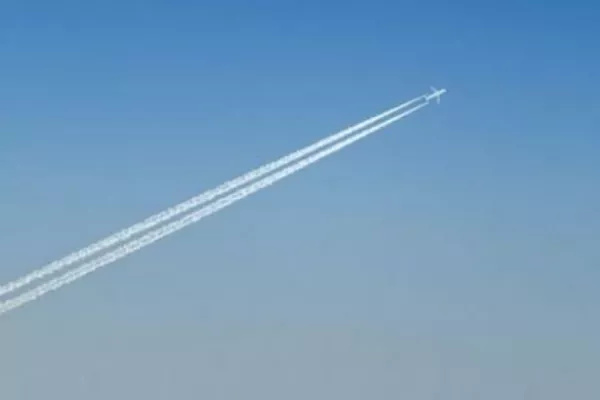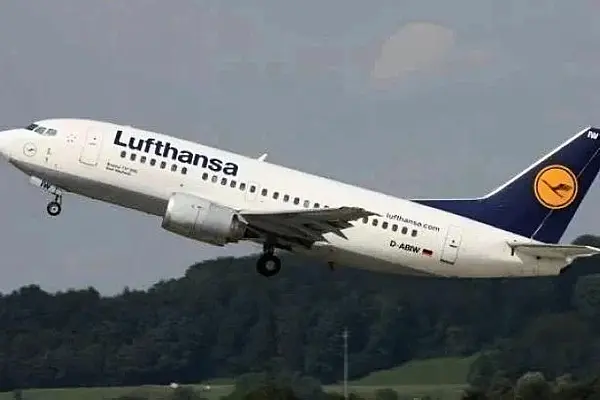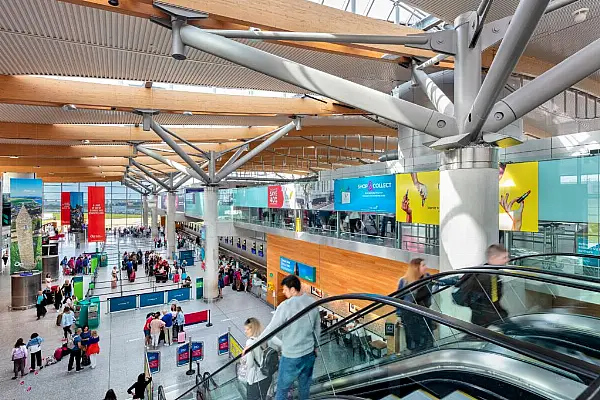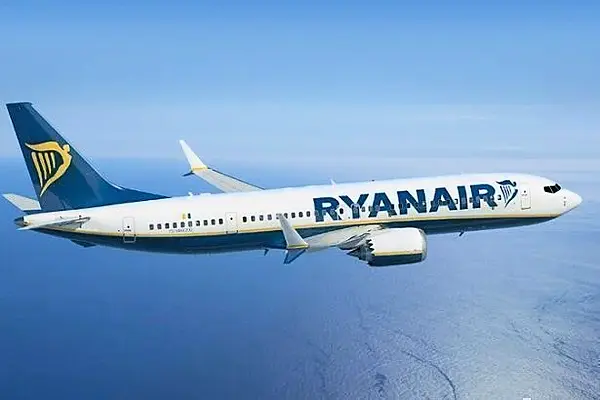Hospitality Ireland presents a round-up of the latest airline and aviation news from around the world.
Air China And China Southern Airlines Narrow Quarterly Losses
Air China and China Southern Airlines narrowed losses in the second quarter after a hit from low Lunar New Year traffic, but domestic COVID-19 outbreaks and border closures are set to weigh on the rest of the year.
Chinese airline stocks had tumbled following domestic COVID-19 outbreaks in late July that locked down some cities and closed airports, but rebounded recently as China has nearly halted local spread.
On Thursday August 26, the city of Nanjing, locked down since late July, resumed commercial flights. Zhangjiajie, a popular tourist destination, also reopened its airport on August 30, an airport official told Reuters.
Third-quarter results will take a hit from the flight cuts, though they were less severe than in the first quarter when outbreaks restricted travel during the normally peak Lunar New Year holiday.
Beijing-based Air China, the country's flag carrier, said its net loss attributable to shareholders narrowed to 578 million yuan ($89.27 million) from 6.2 billion yuan in the first quarter, taking first-half net loss to 6.8 billion yuan.
China Southern Airlines trimmed its loss to 682 million yuan from 4.0 billion yuan in the first quarter for first-half total shortfall of a 4.7 billion yuan.
Second-half earnings are expected to receive a boost from the pent-up domestic travel demand during the Mid-Autumn Festival and the week-long National Holiday in the fourth quarter, as health experts expect current outbreaks in China to be contained by end-August.
Unlike in most markets, China's domestic capacity has rebounded past pre-COVID levels and airlines have added widebody planes on some local flights because international borders remain closed.
Zhong Nanshan, a coronavirus expert who helped shape China's COVID-19 response, told local media that vaccination rate in China is expected to reach 80% by the end of this year.
However, despite the higher vaccination rate, hopes for the reopening of Chinese borders have been delayed as Beijing pushes ahead with its "zero-tolerance" approach while other countries are learning to live with COVID.
"Less than 1% of all seats in the Chinese market are allocated to international services; that must change for any recovery to begin," OAG analyst John Grant said in a weekly online update.
China Eastern Airlines Posts Narrower Quarterly Loss
China Eastern Airlines has said that its net loss attributable to shareholders narrowed to 1.4 billion yuan ($216.46 million) from 3.8 billion yuan in the first quarter.
In the first half, China Eastern Airlines' net loss amounted to 5.2 billion yuan.
Revenue for the Shanghai-based carrier rose 38.13% on the year to 34.7 billion yuan in the first half, in line with growing demand for travel as the Chinese economy continued to recover amid very few COVID-19 cases.
FAA Still Reviewing Boeing 777 Engine Fix After Denver Incident
The Federal Aviation Administration (FAA) has said that it is continuing to review Boeing 777-200 planes equipped with Pratt & Whitney (PW) engines like the one involved in a United Airlines emergency landing in February in Denver.
FAA Administrator Steve Dickson told a US House committee in May that the agency was going to mandate strengthening a key part on those engines. Those planes have been grounded for more than six months.
A Boeing spokesman said that it was "working closely with the FAA, our customers and Pratt & Whitney to safely return PW4000-112-powered 777 airplanes to service. We have identified design changes and are working to finalize them, including a robust certification effort."
The FAA said that its "safety review is ongoing."
The United Airlines flight was heading to Honolulu in February when it suffered an engine failure. The Boeing 777-200 plane landed safely at Denver International Airport soon after takeoff.
A United spokesman said that it expects "these aircraft to return to service but providing anything beyond that in terms of timelines would be premature."
United Chief Commercial officer Andrew Nocella had said in July the airline was "really disappointed" they were not able to fly 777s with the PW engines.
"The 777 aircrafts that are grounded are large capacity domestic movers. And we used those for Hawaii and hub-to-hub. And so right now, we're flying well below where we like to be in Hawaii," he said. "We really want those aircraft back."
United is the only US operator of 777s with the PW4000 engine and has 52 such planes.
The Wall Street Journal reported on Monday August 30 that the 777s may not fly until early 2022, citing people briefed on the matter.
Aeroflot Narrows Second-Quarter Net Loss
Russia's flagship airline, Aeroflot, narrowed its second-quarter net loss by 92.8%, year-on-year, as new bookings and domestic flights supported passenger traffic recovery.
Aeroflot reported a quarterly net loss of 2.59 billion roubles ($35.23 million), compared with a loss of 35.79 billion roubles in the same period last year.
Russian airline traffic has been recovering after a sharp fall last year, although it is still below pre-pandemic levels. Domestic flights have seen growth as the country has eased coronavirus-related travel curbs, though international traffic is still restricted.
Aeroflot's earnings before interest, taxes, depreciation, and amortisation (EBITDA) was 33.88 billion roubles, compared with negative 1.96 billion roubles a year ago.
The carrier's passenger traffic rose 6.5 times to 11.2 million.
In July, Aeroflot CEO Mikhail Poluboyarinov said the group expected its passenger traffic to rise more than 55% this year to 47 million people.
In 2020, the airline transported only 30.2 million people and reported a net loss of more than 123 billion roubles, its worst result in at least a decade.
Willie Walsh, the head of global airline body International Air Transport Association (IATA), said in July that he was cautiously optimistic about demand for travel in the second half of 2021.
Norwegian Air Sees Travel Rebound Ending Need To Seek More Cash
Norwegian Air said on Tuesday August 31 that it would not need to raise more cash as easing COVID-19 travel restrictions lifted bookings, although the budget carrier which has emerged from bankruptcy proceedings did not provide a 2021 outlook.
The pandemic sent the indebted airline into bankruptcy proceedings last year, forcing it to terminate its transatlantic network and to cut more than 6,000 jobs to survive. It now has approximately 3,000 employees.
On August 31, the company reported revenue of 591 million Norwegian crowns ($68.3 million) for the first half of 2021, down from 7.1 billion crowns in the same period a year ago. It said that it remained focussed on preserving cash for the rest of 2021.
"We will very much be ready for the peak season [of 2022], so there is no risk today that we will have to go out and get more capital in the foreseeable future," CEO Geir Karlsen told Reuters.
Norwegian emerged from the government-backed bankruptcy proceedings in May and saw the number of passengers jump in July but still less than a fifth of those flown at the same time two years ago.
Bookings have risen in response to relaxation of travel restrictions and the roll-out of vaccines, Norwegian said, adding that it expected a further boost in the second quarter of 2022 when holiday travel was expected to pick up.
The current fleet of 51 aircraft, down from approximately 160 last year, would likely be fully utilised by the end of the year, up from less than 10 jets flown during April and May, the company said. It aims to expand to between 60 and 70 planes in 2022.
Norwegian's debt was reduced by approximately 80% during reconstruction as creditors took control, but the company now faces fresh competition from Flyr <FLYR-ME.OL> on domestic routes in Norway and some foreign destinations.
"Given the continuous uncertainty and ongoing impact on overall demand for air travel due to COVID-19, Norwegian does not provide guidance for 2021," the board said.
Norwegian's shares rose 0.2% by 0825 GMT on August 31, slightly lagging a 0.3% rise in the Oslo benchmark index.
Lufthansa Cash-Positive This Summer; Rescue Deal On Track, Says CEO
German airline Lufthansa will generate positive cash flow this summer, while it should be possible to fully unwind a COVID-19 rescue package in a year's time, CEO Carsten Spohr said late on Monday August 30.
Most Lufthansa flights were grounded by the coronavirus pandemic in early 2020, plunging the airline into crisis and leading the German government to acquire a 20% stake as part of a €6 billion rescue package.
Germany's economic stabilisation fund said last week it would start selling down its stake in the coming weeks with a view to disposing of it fully by the end of 2023.
"We are relieved that the government has entered the process of exiting," Spohr told journalists, adding that he expected the rescue and stabilisation of the airline to be largely wrapped up next summer.
Cost savings mean Lufthansa can generate cash even with passenger numbers at half pre-pandemic levels - a level reached during the summer holiday season, said Spohr. For the year as a whole, Lufthansa can reach 40% of pre-crisis capacity.
Lufthansa's cargo operation was performing strongly and is expected to generate profits of a billion euros this year, he added. That compares with air cargo profit of €640 million in the first half of this year.
News by Reuters, edited by Hospitality Ireland. Click subscribe to sign up for the Hospitality Ireland print edition.









